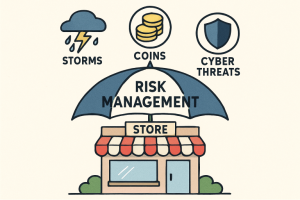As financial crimes become more sophisticated and globalized, the importance of robust compliance frameworks in financial operations has never been greater. At the heart of this compliance ecosystem lie two critical components: Know Your Customer (KYC) and Anti-Money Laundering (AML) protocols. In 2025, these practices are not only regulatory requirements but also key pillars of operational integrity for banks, investment firms, and fintech companies. For individuals looking to enter the financial services industry, enrolling in an online investment banking course that covers KYC, AML, and financial operations can provide a strong foundation and a significant competitive advantage.
What is KYC and Why It Matters in 2025
KYC refers to the process financial institutions use to verify the identity of their customers. This process involves collecting and analyzing key personal and financial information to assess risk and ensure compliance with legal and regulatory standards.
In 2025, KYC processes have become more tech-driven. With the rise of digital banking and cross-border financial activity, traditional document-based verification is being replaced by biometric identification, AI-powered identity checks, and blockchain-based digital IDs. These advancements help institutions reduce fraud, detect suspicious activity faster, and streamline customer onboarding—all while meeting stringent regulatory expectations.
The Growing Importance of AML
Anti-Money Laundering refers to the regulations and practices used to prevent criminals from disguising illegally obtained funds as legitimate income. AML compliance is mandatory for all financial institutions and requires ongoing monitoring of transactions, timely reporting of suspicious activities, and comprehensive internal controls.
As of 2025, money laundering schemes are becoming increasingly complex, often involving cryptocurrencies, shell companies, and cross-jurisdictional transfers. To stay ahead, financial firms are now leveraging AI and machine learning models to analyze vast volumes of transactional data, detect anomalies, and flag potentially illicit behavior in real time.
KYC and AML: A Pillar of Financial Operations
KYC and AML are no longer siloed compliance tasks—they are embedded into the very fabric of financial operations. From customer onboarding and transaction processing to due diligence in mergers and acquisitions, these protocols ensure that institutions remain legally compliant and protect their reputations.
Moreover, global regulatory frameworks such as the EU’s AMLD6, FATF guidelines, and India’s PMLA (Prevention of Money Laundering Act) are being updated continuously. Professionals entering the field in 2025 must not only understand local compliance requirements but also be well-versed in international standards.
Career Opportunities and the Skill Gap
The demand for KYC and AML specialists is growing across banks, investment firms, fintech startups, and regulatory bodies. Roles such as compliance analyst, AML investigator, and onboarding associate are now among the most sought-after in financial operations. However, there is a noticeable skill gap—employers are seeking candidates who understand both the regulatory frameworks and the technology tools used for compliance monitoring.
For aspiring professionals, taking a structured online course in investment banking and financial operations with a focus on KYC and AML can open the door to these high-growth career paths. These courses offer practical training in tools like Excel, risk assessment frameworks, compliance reporting, and case studies from real-world scenarios. In a future where regulatory compliance and operational excellence go hand in hand, investing in the right education today can help you build a resilient and rewarding career in finance.











